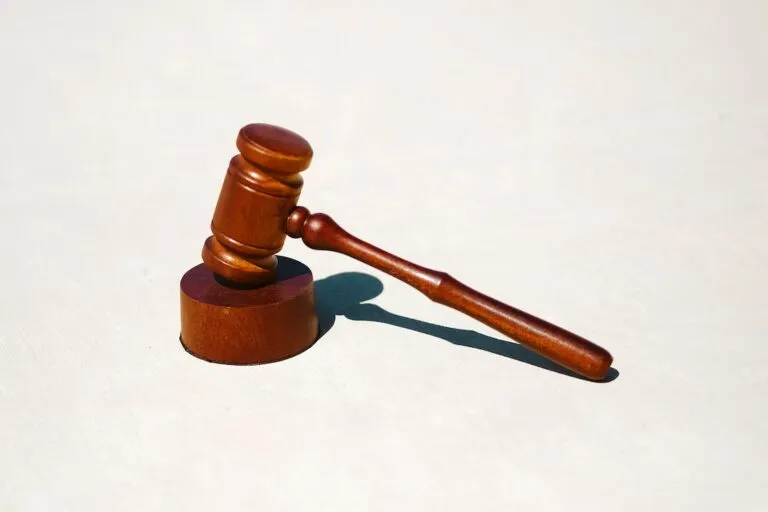Have you or a loved one suffered due to a medical professional’s negligence in Illinois? Navigating the complexities of medical malpractice laws can be overwhelming, but understanding your rights is crucial. This guide will walk you through recognizing a valid claim and the process of filing a lawsuit in Chicago. With the help of a skilled lawyer at Duncan Law Group, you can address the pain and abuse endured and seek the justice you deserve. We’ll also provide insights on selecting the right attorney to represent your case, ensuring you’re equipped to make informed decisions.
Understanding Medical Malpractice Laws in Illinois
Understanding medical malpractice laws in Illinois is crucial for anyone seeking justice after a healthcare mishap. This section delves into the definition of medical malpractice, highlighting the breach of duty as a core element. It also examines the Illinois statute of limitations and the statute of repose, both of which dictate the timeframe for filing claims. Additionally, the concept of comparative negligence, which can influence the outcome of a trial, is explained. For those navigating these complex waters, understanding these legal nuances is vital, especially when considering a contingent fee arrangement with a Chicago medical malpractice attorney.
What Constitutes Medical Malpractice in Illinois?
In Illinois, medical malpractice occurs when a healthcare provider, such as a nursing home or hospital, deviates from the established standard of care, leading to patient harm. This breach, whether due to negligence or omission, can result in an injury claim under personal injury law. An advocate specializing in these cases will assess the details to determine if the standard of care was indeed compromised and if it directly caused the patient’s injuries.
For those affected by medical negligence, a Chicago medical malpractice attorney can be a powerful ally. They bring a deep understanding of how to navigate the complexities of personal injury law to ensure that victims receive the compensation they deserve. By thoroughly investigating claims and advocating for their clients, these attorneys strive to hold responsible parties accountable for their actions, providing a path to justice for those wronged.
Illinois Statute of Limitations for Medical Malpractice Claims
Time is of the essence when it comes to filing a medical malpractice claim in Illinois. The law stipulates a statute of limitations, which generally allows victims two years from the date they become aware of the malpractice to initiate legal action. This period is crucial, especially for those suffering from severe outcomes like spinal cord injury or enduring psychological trauma, as it can affect their ability to seek restitution for their suffering and the impact on their health.
In the chaotic aftermath of a medical error, whether it occurred in an emergency department or during routine medication administration, it’s imperative to consult with a Chicago medical malpractice attorney promptly. These legal professionals understand the urgency and can help navigate the complex legal system, ensuring that claims are filed within the Illinois statute of limitations to secure the justice and compensation that victims rightfully deserve.
Comparative Negligence Laws and How They Affect Your Case
In Illinois, the doctrine of comparative negligence can significantly influence the outcome of a medical malpractice suit. If a patient’s actions contributed to their harm, such as ignoring post-operative instructions after a slip and fall, this can affect the verdict. A Chicago medical malpractice attorney must skillfully demonstrate that the healthcare provider’s negligence was the primary cause of the injury, such as a misdiagnosis of lung cancer, to ensure a fair judgment.
Comparative negligence acknowledges that multiple parties can share fault in a tort case. For instance, if a patient’s smoking habit exacerbated their lung cancer, which was negligently diagnosed late by a physician, the court may reduce the compensation based on the patient’s contributory negligence. A seasoned Chicago medical malpractice attorney will navigate these complexities, aiming to minimize the impact of comparative negligence on the client’s claim and maximize the potential recovery.
Common Types of Medical Negligence Cases
Medical negligence cases in Illinois often involve scenarios where the quality of life for patients has been significantly compromised due to healthcare provider errors. Malpractice lawyers frequently encounter situations such as surgical mistakes, misdiagnoses, or inadequate treatment during the postpartum period, all of which can lead to severe consequences for the patient. These legal experts are adept at identifying when the standard of care has not been met and are committed to pursuing justice, including punitive damages, for those affected.
When a medical malpractice claim is substantiated, it may sometimes lead to an appeal, further extending the legal process. In these instances, Chicago malpractice lawyers play a critical role in navigating the complexities of the appellate system to uphold their clients’ rights. Their expertise ensures that the nuances of each case are presented effectively, aiming to secure a resolution that acknowledges the hardships endured by patients and strives to restore their quality of life to the fullest extent possible.
Signs You May Have Experienced Medical Malpractice
Recognizing the signs of medical malpractice can be the difference between suffering in silence and obtaining rightful compensation. If you’ve received treatment at Northwestern Memorial Hospital or any Chicago healthcare facility and suspect a misdiagnosis or a delay in diagnosis that has exacerbated your condition, this could be indicative of malpractice. Experienced malpractice attorneys in Chicago are skilled in reviewing personal injury cases, discerning the subtleties that may suggest negligence, and providing the necessary legal guidance to address your concerns.
Another telltale sign that you may have a valid claim is if your treatment led to unexpected complications or if you received a different level of care than others with similar conditions. Chicago medical malpractice attorneys understand the standards of care required in personal injury cases and can help determine if your experience falls short of these benchmarks. Their expertise is crucial in navigating the complexities of medical malpractice claims, ensuring that victims receive the attention and restitution they deserve.
The Process of Filing a Medical Malpractice Lawsuit in Chicago
Embarking on a medical malpractice claim in Chicago requires a structured approach, beginning with the initial steps to file your claim. Critical to this process is the collection of required documentation and evidence, which may range from anesthesia records to clinic visit summaries. Additionally, Illinois law mandates an Affidavit of Merit, a document that must accompany your claim. As your case progresses, you’ll face a decision between settlement negotiations and the possibility of trial proceedings. Each of these stages demands careful attention to detail and an understanding of legal strategies, whether your case involves a class action suit or an individual claim stemming from a dog bite or other medical errors.
Steps to Initiate Your Claim
Initiating a medical malpractice claim in Chicago begins with gathering evidence, which may include medical records, blood test results, and therapy session notes. A Chicago medical malpractice attorney will guide you through collecting these crucial documents, ensuring they align with the claim of neglect. This initial step is fundamental, as it lays the groundwork for your case, whether it involves a truck driver’s medical error or a hospital’s oversight.
Once the evidence is compiled, the next phase involves entering into negotiation with the responsible parties. Your attorney will leverage their expertise to advocate on your behalf, aiming to secure a settlement that adequately compensates for the damages incurred. If negotiation proves unfruitful, your lawyer is prepared to take the case to court, where they will present a compelling argument rooted in the evidence of neglect and the impact on your health and well-being.
Required Documentation and Evidence Gathering
Assembling the necessary documentation is a pivotal step in pursuing a medical malpractice lawsuit in Chicago. A patient alleging harm, such as complications from untreated meningitis, must provide comprehensive evidence to substantiate claims of damages and pain and suffering. This typically includes medical records, diagnostic tests, and treatment histories, which collectively paint a detailed picture of the patient’s experience and the alleged negligence.
Moreover, the inclusion of witness statements can significantly bolster a patient’s case, offering corroborative accounts of the events leading to the injury. A Chicago medical malpractice attorney will meticulously gather testimonies from medical experts and eyewitnesses to reinforce the patient’s narrative, ensuring that the full extent of the damages, both physical and emotional, is compellingly presented to the court.
How a Chicago Medical Malpractice Attorney Can Assist You
A Chicago medical malpractice attorney is instrumental in evaluating the strength of your case, especially when injuries as severe as spinal cord damage are involved. They possess the expertise to navigate Illinois’ complex medical laws, ensuring your claim receives the attention it deserves. These legal professionals are adept at advocating for maximum compensation, whether your case involves accidents, premises liability, or other forms of negligence. Moreover, they are skilled in handling insurance companies and adhering to legal deadlines, all while working on a fee structure that aligns with your needs.
Questions to Ask During Your Consultation
When consulting with a potential attorney, it’s essential to inquire about their experience with accident injury cases and how they’ve assisted clients in recovering from their suffering. One should ask for specific examples where the attorney has provided effective legal advice that led to a successful resolution. This can offer insight into their ability to handle your unique situation, especially if it involves complex scenarios like construction accidents.
Another key question to pose during your consultation is how the attorney plans to communicate and involve you in the decision-making process. Understanding their approach to client engagement can be indicative of how they will address your needs and pain points throughout the legal journey. It’s crucial to feel confident that the attorney will guide you with clarity and support, particularly when navigating the aftermath of a traumatic accident injury.
The Benefits of Hiring a Top Injury Law Firm in Chicago
Engaging a top injury law firm in Chicago can be a decisive factor in securing justice and financial compensation for victims of medical malpractice. These firms bring a wealth of experience in handling complex cases, such as those involving amputation or errors at a health facility, ensuring that clients receive the representation they need to navigate the legal system effectively. Their deep understanding of Illinois laws and a proven track record in dealing with truck accidents and other severe cases position them as formidable advocates for their clients.
When the stakes are high, the support of a premier Chicago injury law firm can make all the difference in the pursuit of justice. These legal teams are not only skilled in arguing for substantial financial compensation but also in providing the compassionate representation needed during such trying times. Their commitment to client success is evident in their meticulous preparation of each case, from gathering evidence to presenting compelling arguments in court, all aimed at achieving the best possible outcome for those affected by medical negligence.
Conclusion
A Chicago medical malpractice attorney is essential for navigating the complexities of Illinois laws, ensuring that victims of healthcare negligence can effectively pursue their claims. These legal experts are crucial in evaluating case strength, advocating for maximum compensation, and managing the intricacies of settlement negotiations and trial proceedings. With no cap on damages in Illinois, they offer victims the best chance at full restitution for their suffering and losses. Partnering with a skilled attorney provides the guidance and support necessary to navigate the legal system and secure justice for those wronged by medical malpractice.


